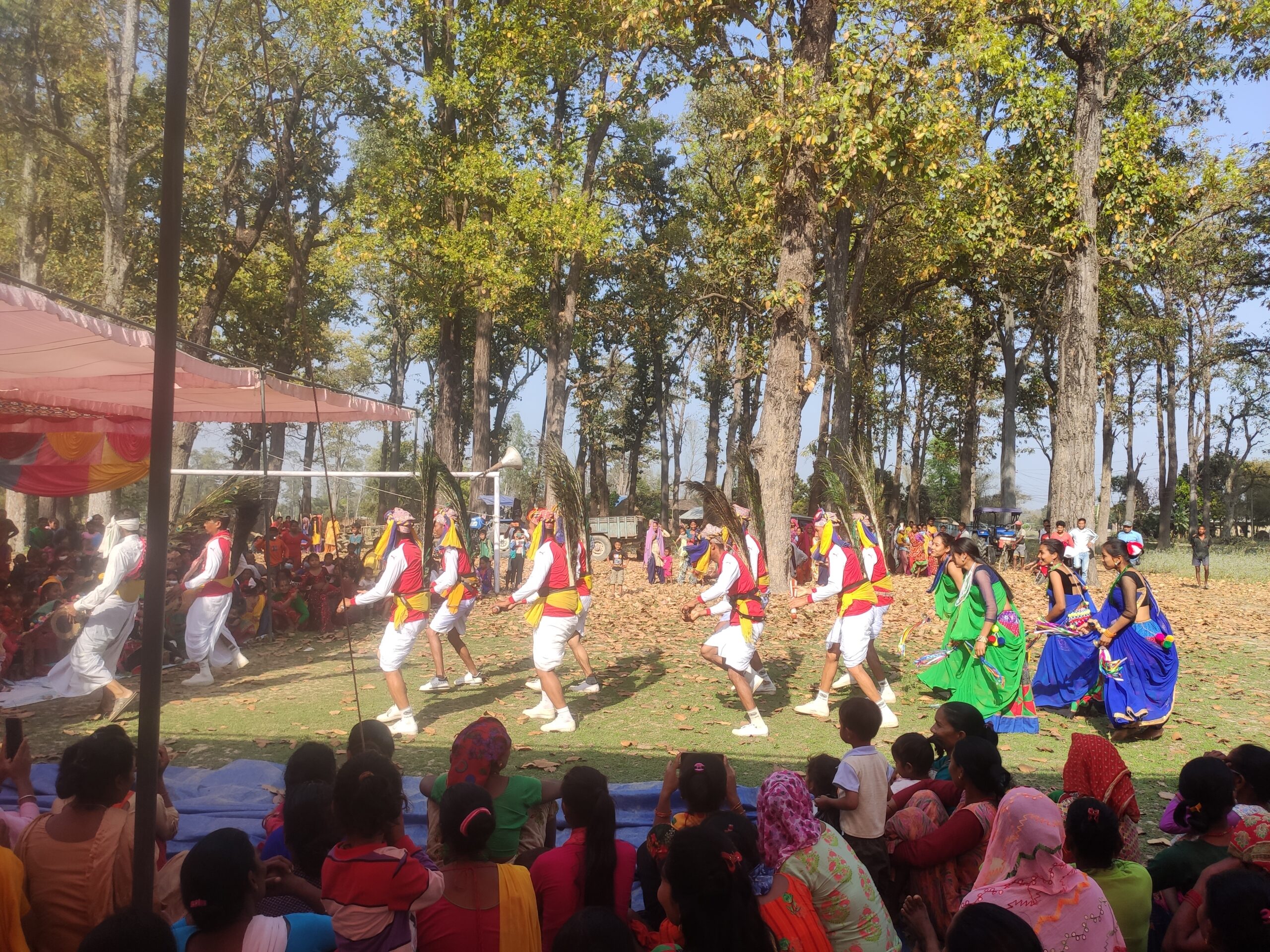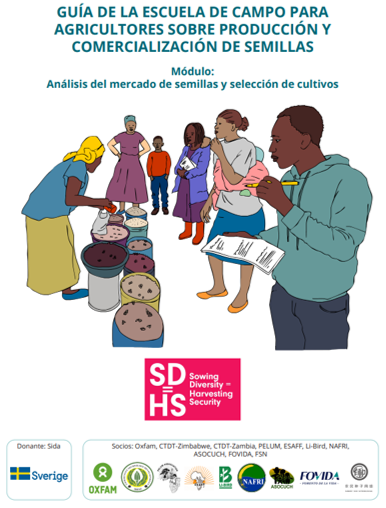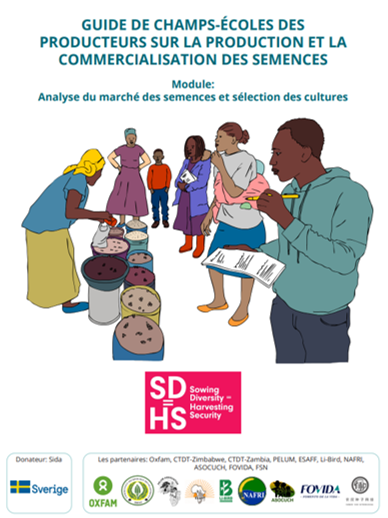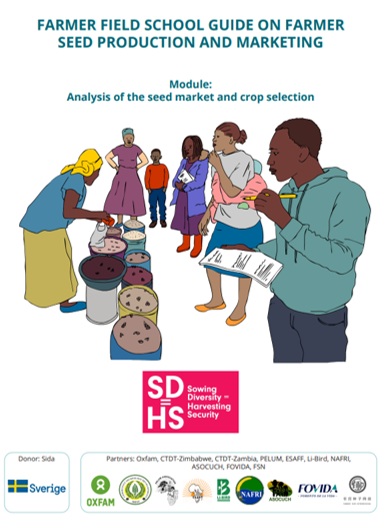Saroj Pant, Neglected and Underutilized Species Officer, LI-BIRD
In Nepal, SD=HS project supports small holder farmers (particularly women) to increase their intake of nutritious food based on the local biodiversity and management of Neglected and Underutilized Species (NUS). One of the approaches to achieve this goal is farmer field school (FFS) approach. This blog focuses on how the participants of Kailali and Kanchapur districts promote agrobiodiversity through diversity fair.
If you find yourself surrounded with diverse local seeds and you have the chance to select and exchange your seeds; it is likely you are at an agrobiodiversity fair.
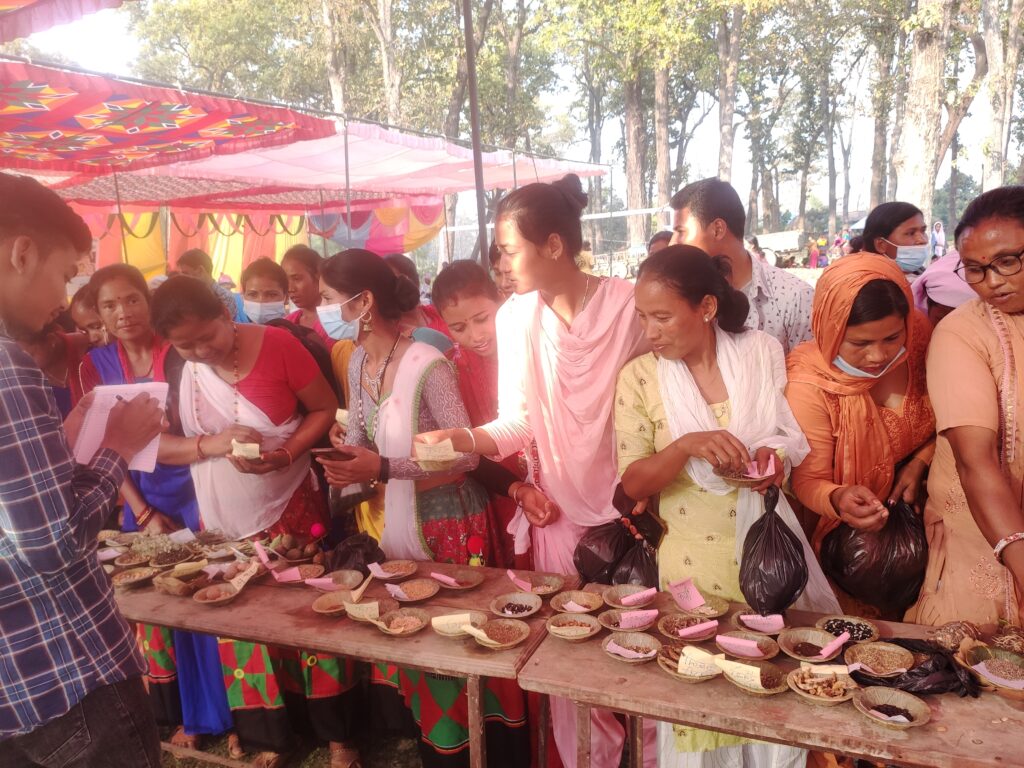
Photo: Saroj Pant, LI-BIRD
It’s a day that celebrates the multicultural community, diverse seeds of various crops, food recipes prepared from local food plants and their diverse products to promote exchanges of seeds and traditional knowledge of NUS crops. Such fairs also showcase the richness of ethnic cultures through cultural dance and traditional music. This is also a day to recognize the custodian of seeds: farmers and communities’ contribution to the conservation and promotion of agrobiodiversity.
The aim of a diversity fair is to create awareness and interest among the diverse stakeholders on the importance and value of the local plant genetic resources. This article captures the reflections of two diversity fairs organized in Kailali and Kanchanpur on March 21st and 27th 2022 respectively.
At Kanchanpur, a total of 650 visitors visited the fair, in which most of the participants were female. The fair was organized by SD=HS project through Anmol Community Seed Bank operated by Anmol Agriculture Cooperative Limited with support from Laljhadi Rural Municipality and other local government agencies. In the diversity fair, more than 40 different crop species were displayed, and 15 crop species were recorded as new in Anmol Community Seed Bank’s agrobiodiversity crop inventory.
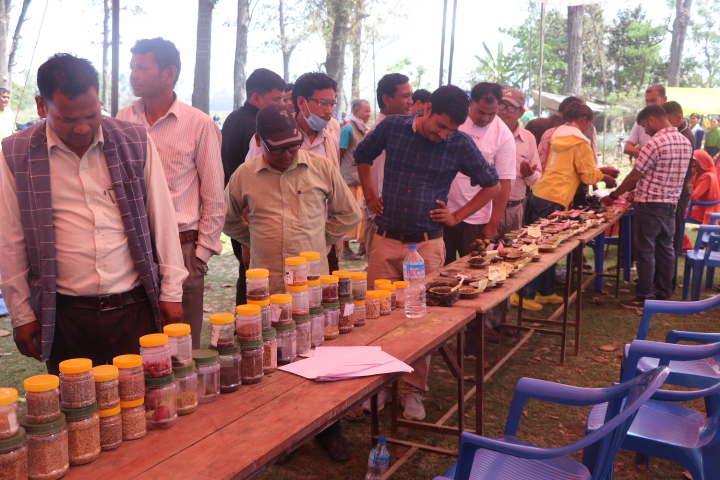
Photo: Saroj Pant, LI-BIRD
Sixteen FFS groups took participate in the agrobiodiversity fair and among them three FFS were selected by a committee on the basis of number of local seeds, food recipes, cultural dance and traditional dresses. Cash prizes were given to the three winning FFS groups.
The event was chaired by the cooperative chairperson with Provincial Finance Minister as the chief guest of the diversity fair. Among others, the Chairperson of the Municipality, Chief of Agriculture Knowledge Center (AKC), and other representatives from development partners, media and local leaders. During the event, Finance minister shared that agrobiodiversity fairs are one of the best tool to share the knowledge and value of the NUS crops and committed NPR 2 million (EUR 15,500) to Anmol Community Seed bank for the conservation and promotion of NUS crops.
The diversity fair in Kailali was attended by 467 participants, with women making up for 70% of the visitors. The Janabatawaran mutlipurpose cooperative organized the fair with support from LI-BIRD, Kailari Rural municipality, members of FFS groups and local government line agencies. Kailali Rural municipality leveraged NPR 100,000 (EUR 774) to support the agrobiodiversity fair.
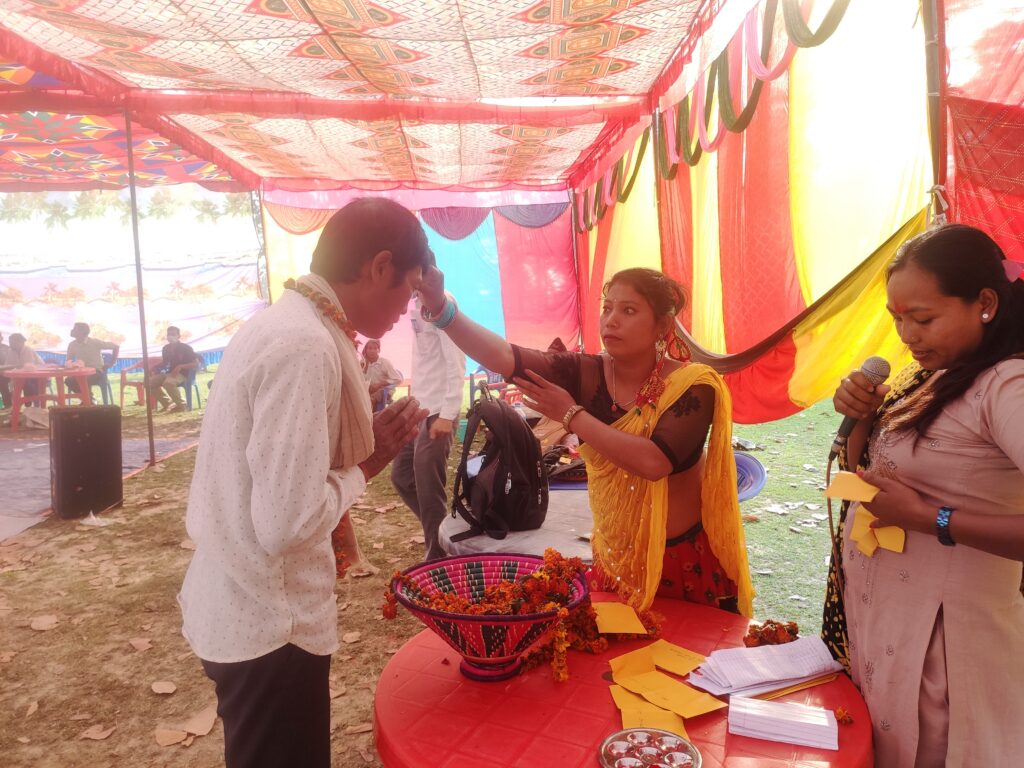
Photo: Saroj Pant, LI-BIRD
Altogether, 14 farmer field school groups displayed a total of 94 varieties of 53 different crop species – 10 cereals, 8 legumes, 20 vegetables, 8 spices and 7 fruits. Reflecting the high agrobiodiversity richness of the region. Srijanshil FFS won the first price for displaying the highest number of plant genetic resource in the stall, with an impressive total of 31 crops of 76 varieties.
The event was attended by chief local authorities and chaired by cooperative chairperson, Gita Devi Chaudhary who stated: “This platform helped us to collect the rare and endangered species and varieties and our community seed bank will continuously engage with farmers to conserve them. I will coordinate with other relevant stakeholders to leverage the matching fund for organizing this type of fair once in a year from now onwards”
In both locations, the fair showcased cultural dress and dances as well as special tastes of local recipes. Informative materials, posters and flyers regarding the agrobiodiversity conservation and promotion were displayed and during the event.
Naina Chaudhary, Facilitator of FFS on NUS from Kailali shared her view “I am very much happy, and I got the opportunity to represent as a leader from my FFS. I had not heard of some of the local endangered species before. This type of occasion will help us to learn and exchange the seed available in nearby villages. I will share the knowledge I gathered form the fair with other FFS participants”.
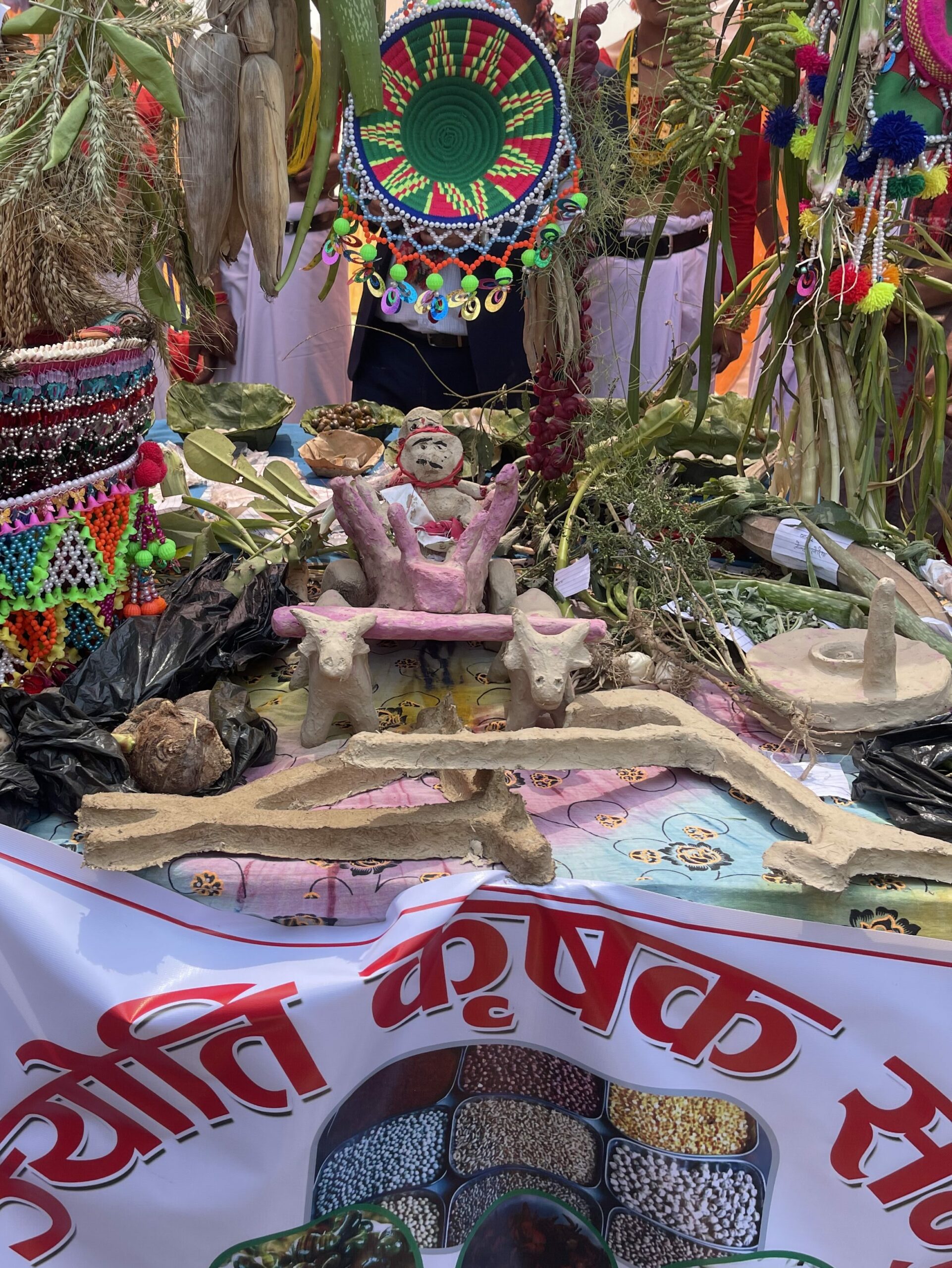
Photo: Sahadev Kc, LI-BIRD
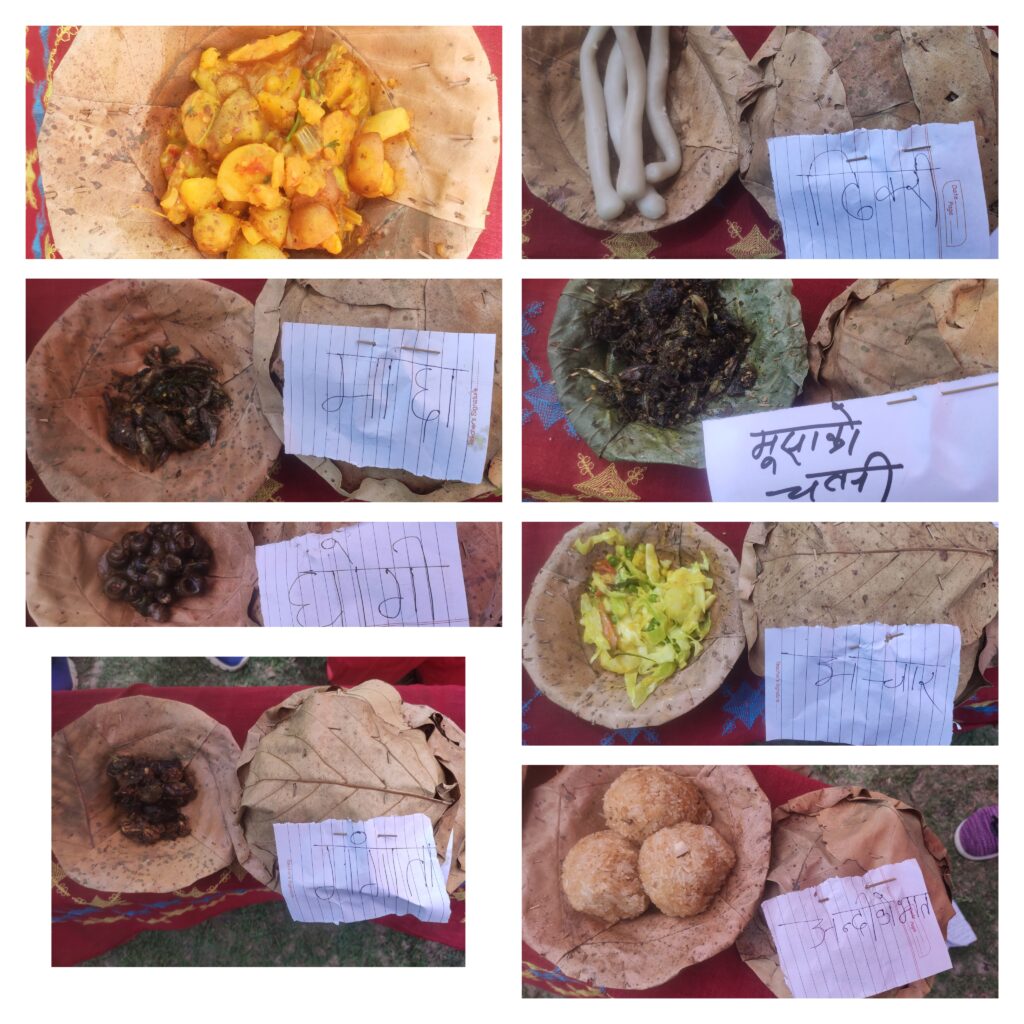
Photo: Saroj Pant, LI-BIRD
In the event, all participants taste local food recipe (like; Dhikri, Anadi ko bhat, Ghongi, Musa ko chatni, pickle of local raddish & cabbage etc). Some of the participants appreciated the taste of the local black potato, local beans, local sesame, Anadi rice and they took the seeds of those crops. Also, 31 visitors exchanged the seeds of different local crops (such as bottle gourd, cowpea, sesame, finger millet, Amilarcha, local maize, pumpkin, coriander).
At the end of the day, the local government and related stakeholders from Kailali and Kanchanpur appreciated SD=HS’s joint effort towards the conservation of the local crops, varieties and made commitment to organize and support this type of agrobiodiversity fair in the near future.
Results of Diversity fair:
The Janabatawaran multipurpose in Kailari will establish a community seed bank to address the decreasing trend local crops and varieties. The collected seeds will be stored in the community seed bank. Meanwhile, the Anmol community seed bank in Kanchanpur gained 15 new seeds to display. The diversity fairs encouraged many other local institutions and farmer field schools’ groups to promote, and conserve neglected and underutilized species and crops.
Lessons learned:
- It is difficult to identify and pinpoint the exact name of a variety. Varieties’ names are not consistent within and between villages.
- When farmers group/FFS groups/cooperatives manage the fair, it increases ownership and makes them feel more responsible and accountable towards their work.
- Diversity fairs helps to collect the rare and unique varieties and species, it allows to conserve them in the community seed bank
- Fairs helps to identify the main informal seed system supply within the country, to understand the reason for growing such a diverse genetic resource in terms of economic, cultural and religious values.
Saroj Pant is a Neglected and Underutilized Species Officer at LI-BIRD

